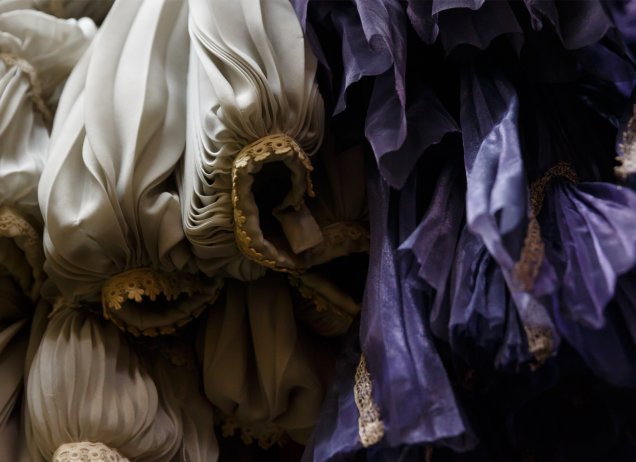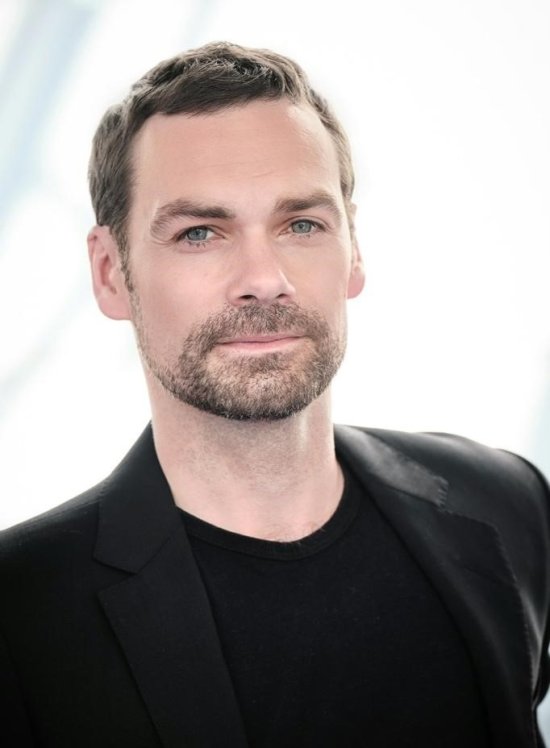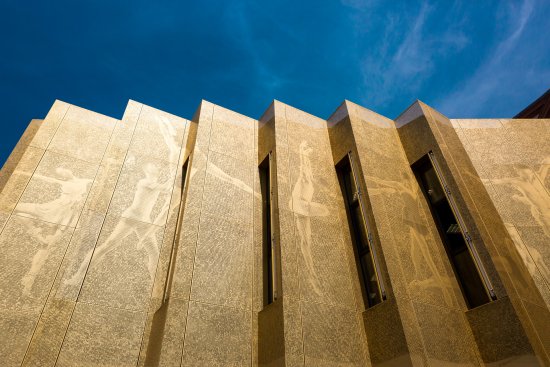
The Opéra national du Rhin Ballet
The company
Based at Mulhouse, the OnR Ballet is a company of 32 dancers from around the world, all academically trained and selected for their stylistic versatility. Directed by Bruno Bouché since 2017, the company has earned singular international acclaim, built up over 50 years of collaboration with world-leading classic and contemporary choreographers. It has also forged strong ties with local audiences across the region.
A CCN at the opera
The OnR Ballet was recognized as a Centre chorégraphique national (CCN) in 1985 and remains an exception as the only one attached to an opera house. Its unique identity has shaped this center of excellence, which has a mission not just to revisit classical pieces but also to actively produce new works under both seasoned choreographers and emerging talents. The Ballet's repertoire is one of the most diverse in France, ranging from baroque through to reinterpreted classics and contemporary pieces. With a program specifically designed to be boundary-pushing yet accessible to all, the Ballet helps promote dance culture among its ever-growing audiences, complemented by school matinées and educational sessions.
Under the impetus of Bruno Bouché, the CCN's missions are expanding. The invitation of the Compagnie Retouramont, pioneers of vertical dance, as ‘Associate Artists’, continues the reflection on the place of a Ballet in the city and develops its presence in the public space, as close as possible to the citizens. Laura Cappelle's research residency, supported by DanceReflections from Van Cleef & Arpels, is analysing the aesthetic and social evolutions of contemporary ballet, contributing to the transformations at the heart of the project for a European Ballet in the 21st century.
The OnR Ballet has also broadened its range. Located at the crossroads of Europe, the company delights in exploring fresh works and subjects that resonate with today's audiences. The program of new forms and pieces devised by young dancers-choreographers continues to push the boundaries of dance to foster connections between performers and choreographers, artists and spectators. It strikes a balance between honoring tradition and taking risks, revisiting classics and championing modern creativity.
Bruno Bouché

Artistic Director
Bruno Bouché has been Director of the Ballet de l'Opéra national du Rhin since 2017. He joined the Ballet de l'Opéra national de Paris in 1996 and danced under the direction of Brigitte Lefèvre, performing a repertoire ranging from Rudolf Nureyev to Pina Bausch, via William Forsythe and Angelin Preljocaj. He has signed his own choreographies since 2003, which he regularly presents at the Palais Garnier and throughout the world. For the Opéra national du Rhin, he has created Fireflies (2018), 40D (2019), Les Ailes du désir (2021) after Wim Wenders, They Shoot Horses Don't They? after Horace McCoy (2023) with Clément Hervieu-Léger and Daniel San Pedro, Pour le reste (2024) and recreated Bless ainsi soit-Il (2018) and Nous ne cesserons pas (2024). As part of the MAMCS exhibition 'Aux temps du sida' (In the Time of AIDS), he created Jérôme in tribute to the writer Mathieu Riboulet. In 2026, he will create a new choreography for the Chemnitz Theatre Ballet: Caravaggio or the Silence of Our Heartbeats.
Timeline of the OnR Ballet
Foundation of the Opéra du Rhin as a syndicat intercommunal by the cities of Strasbourg, Mulhouse and Colmar. The ballet company of the Opera is based in Strasbourg and is called Ballet du Rhin. Jean Babilée is the first artistic director.
The company moves into its venue in Mulhouse. Peter Van Dyk is appointed director. He is followed by Jean Sarelli (1978), Jean-Paul Gravier (1990), Bertrand d'At (1997), Ivan Cavallari (2013), and now Bruno Bouché.
The Ballet du Rhin receives the status of Centre chorégraphique national (CCN). At this time, it's the only working CCN that's part of an opera.
The Opéra du Rhin earns the title of Opéra national, and the Ballet du Rhin becomes the Ballet de l'Opéra national du Rhin.
The CCN

National Choregraphy Center
The French Ministry of Culture awards the title of Centre chorégraphique national (CCN) to institutions directed by choreographic artists of particular merit, whose spirit and originality represent the creative diversity on the contemporary French stage. The 19 CCN focus mostly on choreographic work, but also on building repertoire, spreading productions, sharing resources, and choreographic training and development. They are funded by the central and regional governments to promote regional development and dance. Artists receive structural support and a dedicated workplace. The Ballet of the Opéra national du Rhin became a CCN in 1985 and remains an exception, as it's the only CCN that is also part of an opera. The official policy is to promote both grand repertoire and neo-classical ballet, while hosting contemporary companies to foster professional exchange. Each CCN follows a policy of creation and promotion, both in its own region and abroad, maintenance of a particular repertoire, and development of innovative dance projects.
L’accueil Studio
Since 1998, the Department of Music and Dance of the Ministry of Culture, has given the CCNs the task of assisting independent companies through a programme called Accueil Studio. The aim is to provide the companies selected with the means afforded professional productions through material and/or financial support (studios, backing through co-production etc.), foster contacts and exchanges and guide the emergence of innovative artistic projects. In this respect, the CCNs act as resource centres for choreography in France. A financial envelope is allocated to each CCN to help bring the projects of the selected companies and choreographers to fruition. The Ballet of the Opéra national du Rhin has been committed to this policy since 2002. It has supported the work of choreographers from Alsace, and indeed the whole of France. The aim is, above all, to give projects substance, foster encounters, forge partnerships and enable dance to flourish throughout France.
Grand Luxe
Cross-border and European cooperation.
Founded around a simple idea, the Grand Luxe network found its name and its project through discussions between structures sharing the same missions. It’s a way of supporting choreographic creation in ways other than through dissemination and production, and of pooling ideas, advice, space and resources to support developing projects. This is how our nine establishments are opening up to requests from artists to define a research pathway, movement between countries and venues and meetings between project leaders. Meetings, training courses, a professional platform, seminars and residencies are all part of the process for each participant.
Here are the supported artists in 2024-25:
- Sylvain Lepoivr supported by POLE-SUD CDCN
- Florencia Demestri supported by Grand Studio
- Samuel Lefeuvre supported by Grand Studio
- Chara Kotsali supported by Onassis Stegi
- Saeed Hani supported by TROIS C-L | Maison pour la danse
- Vidal Bini supported by the CCN•Ballet de l’Opéra national du Rhin
- Emma Saba supported by L’Abri
- Smadar Goshen supported by the Theater Freiburg
- Catarina Miranda supported by the Teatro Municipal do Porto
Auditions
Auditions
Applications should be sent by e-mail to ballet@onr.fr.
Please send us:
• CV
• 3 or 4 photos
• a contemporary video
• a classic video on pointe
Auditions are closed for the '26'27 season. Next applications will be considered from January 2027 for season '27'28.
Regular dance training
Participation in the company's class. Please apply in advance. Admission requirements:
• At least 18 years old
• Proof of professional experience
• Please attach your CV and photos to your application.
The artistic director may choose not readmit new candidates after the first period.
Only by e-mail: Pasquale Nocera • pnocera@onr.fr
